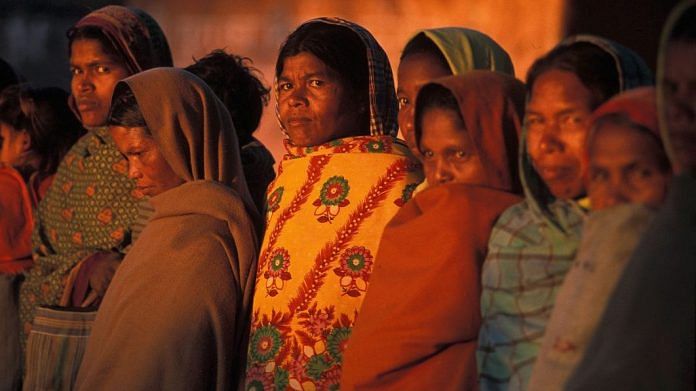New Delhi: From cutting off access to abortions and contraceptives to a significant increase in domestic burden, the coronavirus pandemic has had catastrophic repercussions on women’s health.
According to Chandrashekhar V.S., CEO of the NGO Foundation for Reproductive Health Services India (FRHS), the three-month nationwide lockdown imposed in March 2020, had widespread ramifications on the health of women especially, due to the increase in pressure.
“There are all different reports of increasing intimate partner violence … there have been also reports of increased mental health issues, because the pressure on the woman to maintain things in the house were much more magnified,” he told ThePrint.
As part of our series Safe and Sound, in association with Facebook, ThePrint spoke to health experts on the various ways the pandemic affected women and their physical and mental health.
Access to abortions, contraceptives
One of the major consequences of the lockdown was the restricted access to abortions and contraceptives, which propelled unwanted pregnancies.
The UN Population Fund had predicted that the number of unintended pregnancies would rise by 7 million because of the lockdown. In India, it is estimated that these numbers would go up by 2 million, a 7 per cent increase because of the pandemic.
“The biggest issue posed by the lockdown was the physical hurdles in accessing abortion services,” said Chandrashekhar, adding that even though essential services were allowed to operate, several facilities had remained non-functional.
“In general, access to abortion care is very limited, and during this time it become even worse,” he said.
There were also restrictions in terms of access to medical abortion drugs, which further complicated access to abortion care. “This is important because abortion is very time sensitive, if you are 18 weeks, you lose 2 weeks, you cross the 20 week threshold allowed by the law,” he said.
Furthermore, access to contraceptives were also hindered.
An earlier report by ThePrint had noted that the sale of condoms and contraceptives dipped during lockdown.
A study conducted by The Foundation for Reproductive Health Services India in early 2020, had suggested that as many as 2.56 crore couples would not be able to access contraception until September.
Moreover, as many women had to carry unintended pregnancies to term, it also spelled a rise in maternal mortality cases.
“So, we estimate also that, because of this lack of access to contraception, women became pregnant and therefore many of them were exposed to the risks related to pregnancy, and, you know … (it is) estimated (there were) around 2,000 additional maternal deaths due to this,” Chandrashekhar said.
Also read: Women’s health improves when they have more control in society
Domestic burden
Not only reproductive health, women also had to shoulder a lot of domestic labour in the past year. With months spent in lockdown with entire families, household work increased exponentially for women.
A study by researcher Priyanshi Chauhan found that “22.5% of married women, as compared to zero men and unmarried women, worked for more than 70 hours per week”.
For unemployed women, the increase was all the more acute at 30.5 per cent.
“For unemployed women, particularly the housewives/homemakers, the excessive burden is due to the perception that their share of responsibility for unpaid work should be more due to not being engaged in full-time employment and is more efficient in performing these tasks,” the study stated.
But being stuck at home also meant that women were locked in with their abusers.
India, here, saw an interesting trend. Although the number of calls to domestic abuse helplines saw a decline, victims increasingly employed other means, according to ThePrint’s report last year.
Delhi-based Jagori helpline’s director Jaya Velankar had told ThePrint at the time that this was because women lived in joint families where access to privacy is limited.
“That leaves very little wiggle room for women to call us. They often don’t want to be seen or heard by anyone when making a complaint,” she had said.
“The demands on women both physically mentally and emotionally were much higher than normal times, which would have adversely impacted their mental and physical healths. So, overall, the situation was I think, if you look at it from a health perspective, unfortunately, women faced much larger distress and inability to access healthcare during this period,” Chandrashekhar added.
Watch the full episode here
Also read: Indian education’s new digital wave after Covid left behind women



